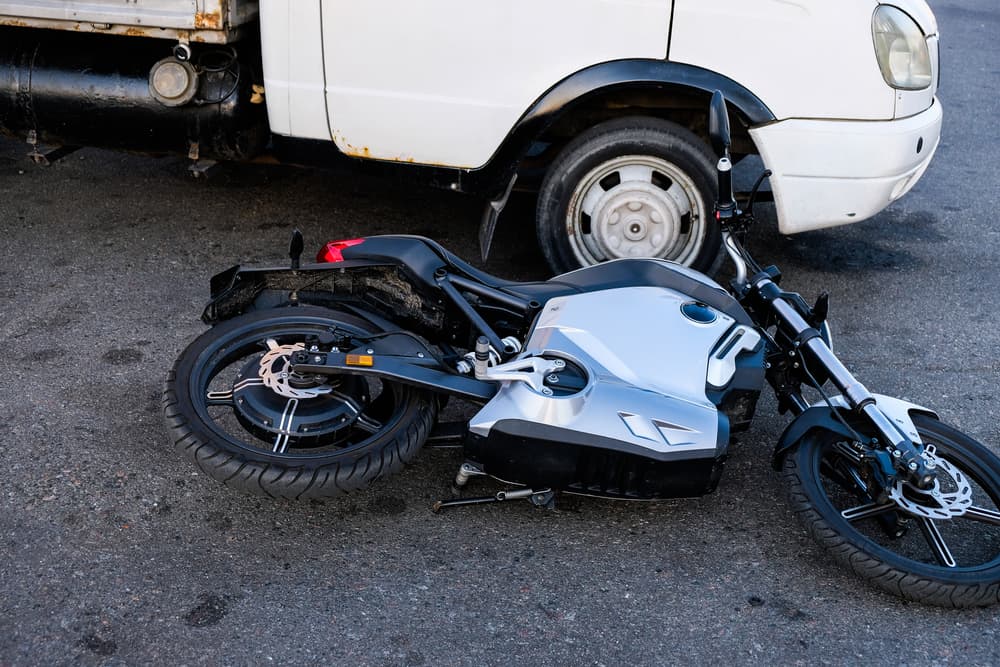Motorcycle accidents can be unsettling experiences, leaving riders feeling uncertain about what to do next. After ensuring your immediate safety at the accident scene, you should contact a motorcycle accident lawyer and take several important steps in the following days and weeks. This guide will walk you through these steps.
Prioritize Your Health and Well-being
After a motorcycle accident, prioritize your health and well-being. One of the first and most important steps is to seek medical attention. Even if you feel fine, get a professional medical evaluation. Why is this so important? Because some injuries, particularly those common in motorcycle accidents like internal bleeding or concussions, might not show symptoms immediately. These types of injuries can be serious or even life-threatening if not addressed promptly. A thorough medical check-up right after the accident ensures that any such hidden injuries are identified and treated early.
Once you’ve seen a doctor, the next step is to follow their medical advice closely. This step is key to your recovery. The doctor’s recommendations can include a range of treatments or actions. For instance, they might prescribe certain medications to help with pain or to prevent infections. They can also recommend physical therapy, which plays a big role in helping many people recover from the physical impacts of an accident. Physical therapy can help restore movement, reduce pain, and speed up the healing process. Additionally, your doctor might advise you to rest adequately. Rest is vital to recovery, giving your body the time it needs to heal.
After the initial medical attention, it’s equally important to monitor your health in the weeks following the accident. Your body might respond in unexpected ways as it heals. Pay attention to how you feel. Are there any new symptoms? Are you experiencing increased pain, dizziness, or other concerns? These can be signs that your body is still dealing with the accident. If you notice anything unusual or if new symptoms arise, don’t hesitate to seek medical attention again. It’s always better to be cautious and get any new symptoms checked out promptly.
Remember, caring for your health isn’t just about addressing physical injuries. The trauma of a motorcycle accident can also have emotional and psychological impacts. Be mindful of your mental health and consider seeking support if you’re struggling to cope. Prioritizing your health means addressing immediate injuries and taking care of your overall physical and emotional recovery.
Manage the Legal Aspects
After a motorcycle accident, managing the legal aspects is an important part of the process. This involves several steps that help protect your rights and interests.
Firstly, report the accident to the authorities if you haven’t already. This step is not just a legal requirement in many areas, but it also creates an official record of the event. The report generated by the authorities, often a police report, contains details about the accident, such as the time, location, and parties involved. This report can be useful if you need to make an insurance claim or if there’s a need for legal action. It serves as an objective account of the incident, which can help resolve disputes about what happened.
Another aspect is documenting everything related to the accident. This process includes keeping a record of all relevant documents. For instance, you should retain copies of any medical reports and bills demonstrating the extent and cost of your injuries. Additionally, hold onto receipts for any other expenses incurred due to the accident. This can include repairs to your motorcycle, travel expenses to medical appointments, or any other accident-related expenditure. Also, keep a record of all your correspondence with insurance companies. This documentation can support your injury claims and ensure you receive fair compensation.
Understanding your insurance policy is also a part of managing the legal aspects of a motorcycle accident. Your insurance policy is a contract that outlines what is covered in the event of an accident. Take the time to review your policy thoroughly. Try to understand what is included and, just as importantly, what isn’t. This understanding can guide your expectations and actions after the accident. If there are aspects of the policy you find unclear or have questions, don’t hesitate to contact your insurance provider or a motorcycle accident attorney. Clarification from your insurance company or a lawyer can shed light on your coverage and any steps you need to take to make a claim.
Go Through the Insurance Processes
Going through the insurance processes following a motorcycle accident is a step in ensuring you receive the support and compensation you deserve. The first action is to notify your insurance company about the accident. Have a motorcycle accident attorney do this as soon as possible. Prompt communication not only aligns with most insurance policies’ requirements but also sets the stage for a smoother claims process.
Your lawyer can provide all the necessary details about the accident, including when and where it happened, the extent of any injuries, and the damage to your motorcycle. This detailed information helps your insurance company understand the situation and begin processing your claim.
Understanding the claims process is the next important step. Each insurance company has its own process, but typically, you may need to submit several pieces of evidence. This can include photos of the accident scene, your motorcycle, and your injuries. Additionally, providing a detailed statement about the accident is often required. This statement should include your recollection of how the accident occurred and any other relevant details. The claims process might also involve negotiating with the insurance company. Negotiations can pertain to the settlement amount or the coverage of specific expenses related to the accident. It’s important to be prepared for this phase with the help of an attorney, as it can significantly impact the outcome of your claim.
Be cautious about accepting quick settlement offers. After an accident, you might receive an offer from an insurance company to settle the claim rapidly. While accepting a quick settlement to resolve the matter promptly might be tempting, it’s important to consider the full extent of your expenses and the long-term impact of your injuries. Quick settlements can often be lower than what you might be entitled to and may not fully cover your medical expenses, lost income, or the cost to repair or replace your motorcycle. Before accepting any settlement, it’s advisable to carefully review the offer and consult with a motorcycle accident attorney, especially if you have any doubts or concerns.
Seek Legal Advice
Seeking legal advice can be the most important step in protecting yourself and ensuring adequate compensation for your losses. Hiring an attorney, particularly one who handles motorcycle accidents, can provide insights into your situation. These attorneys are well-versed in motorcycle accident claims and can offer guidance tailored to the specific circumstances of your case.
A key benefit of seeking legal advice is understanding your rights clearly. An experienced lawyer can explain your rights in a way that is easy to understand, helping you to grasp what you are entitled to under the law. They can also outline the legal options available to you. This might include pursuing an insurance claim, negotiating a settlement, or, if necessary, taking legal action.
In addition to explaining your rights, a motorcycle accident lawyer can advise you on the best course of action based on your specific situation. Every accident is unique, and what might be the best approach in one case may not be suitable in another. An attorney can assess the details of your accident, including the extent of your injuries, the damage to your motorcycle, and the circumstances of the crash, to provide tailored advice. This guidance helps you make informed decisions about how to proceed, whether through negotiations with insurance companies or pursuing a legal claim.
Consulting with an attorney does not obligate you to take legal action. Instead, it provides the information necessary to make an informed decision about your next steps. Understanding your rights and the legal avenues open to you is empowering. It ensures that you are not handling your accident blindly but with a clear understanding of how to best protect and assert your interests.
Take Care of Your Emotional Health
In the wake of a motorcycle accident, acknowledge and address not just the physical injuries but also the emotional impact such an incident can have. It’s common to experience a range of emotions, including anxiety, PTSD, and depression. These feelings are a natural response to a traumatic event. Recognizing and accepting these emotions as a valid part of your experience is the first step toward emotional healing.
Just as you would seek medical attention for physical injuries, seeking support for your emotional well-being is equally important. The support can come from friends, family, or professional counselors. Each offers different forms of comfort and assistance.
Talking about your experience can be incredibly therapeutic. It helps process the events and can significantly aid in emotional healing. Whether it’s discussing your fears, frustrations, or the challenges you’re facing post-accident, verbalizing these feelings can bring a sense of relief and clarity. It’s a way of unpacking the emotional burden of the accident, making it easier to manage and work through.
Remember, taking care of your emotional health is as important as physical healing. By acknowledging the emotional impact of the accident and seeking appropriate support, you can pave the way for a holistic recovery.
Plan Your Return to Riding
After experiencing a motorcycle accident, planning your return to riding is a step that requires careful consideration. Assess your physical and emotional readiness before deciding to get back on your motorcycle. There’s absolutely no rush to return to the road. Give yourself enough time to fully recover. Physical readiness is about ensuring that your injuries have healed and that you feel strong enough to handle the motorcycle again. Equally important is your emotional readiness. It’s normal to feel apprehensive or nervous after an accident. You need to feel confident and comfortable, not just about your ability to ride but also about being back in traffic.
If you’re feeling apprehensive about riding again, it might be beneficial to consider additional motorcycle training. Such courses can be a great way to rebuild your confidence. They offer a controlled environment to brush up on your riding skills and learn new techniques, which can be particularly helpful after an accident. Training courses also provide an opportunity to ease back into riding, helping you to regain your comfort on the motorcycle at your own pace.
Another important aspect of planning your return to riding is to review and possibly upgrade your safety gear. The accident might have prompted thoughts about what gear you were wearing and its effectiveness. This is a good time to invest in high-quality protective gear. Look for gear that offers better protection and comfort. This might include a more advanced helmet, reinforced jackets, gloves, pants, or even new boots. Not only does this gear provide a physical safety barrier, but it can also give you an additional sense of security when you’re back on the road.
Stay Informed and Proactive
Actively keep up with the progress of your case. Regularly communicate with your lawyer or insurance representative. This keeps you updated on the status of your claim or legal proceedings and ensures that you are actively involved in the process. Being informed enables you to make timely decisions and provide any necessary information that can affect the outcome of your case.
Beyond keeping up with current cases, it’s also wise to use this experience as a stepping stone to prepare for the future. This can mean taking a closer look at your insurance coverage. Perhaps the accident highlighted areas where your coverage was lacking, or additional coverage could be beneficial. Reviewing and updating your insurance policy can help ensure that you are better protected in the future.
Additionally, consider developing a personal emergency plan. This plan can include steps to take in the event of another accident, such as a list of emergency contacts, information on your insurance policy, and a basic first aid kit. Having such a plan can provide peace of mind and ensure you’re better prepared for any unforeseen circumstances.
Contact a Legal Professional After a Motorcycle Accident

Recovering from a motorcycle accident is a process that involves taking care of your physical and emotional health, managing legal and insurance matters, and gradually preparing for a safe return to riding. Remember, you’re not alone in this journey. Seeking support from experienced personal injury lawyers can provide the guidance and reassurance you need during this time. Stay informed, stay proactive, and prioritize your well-being as you move forward from this experience.


